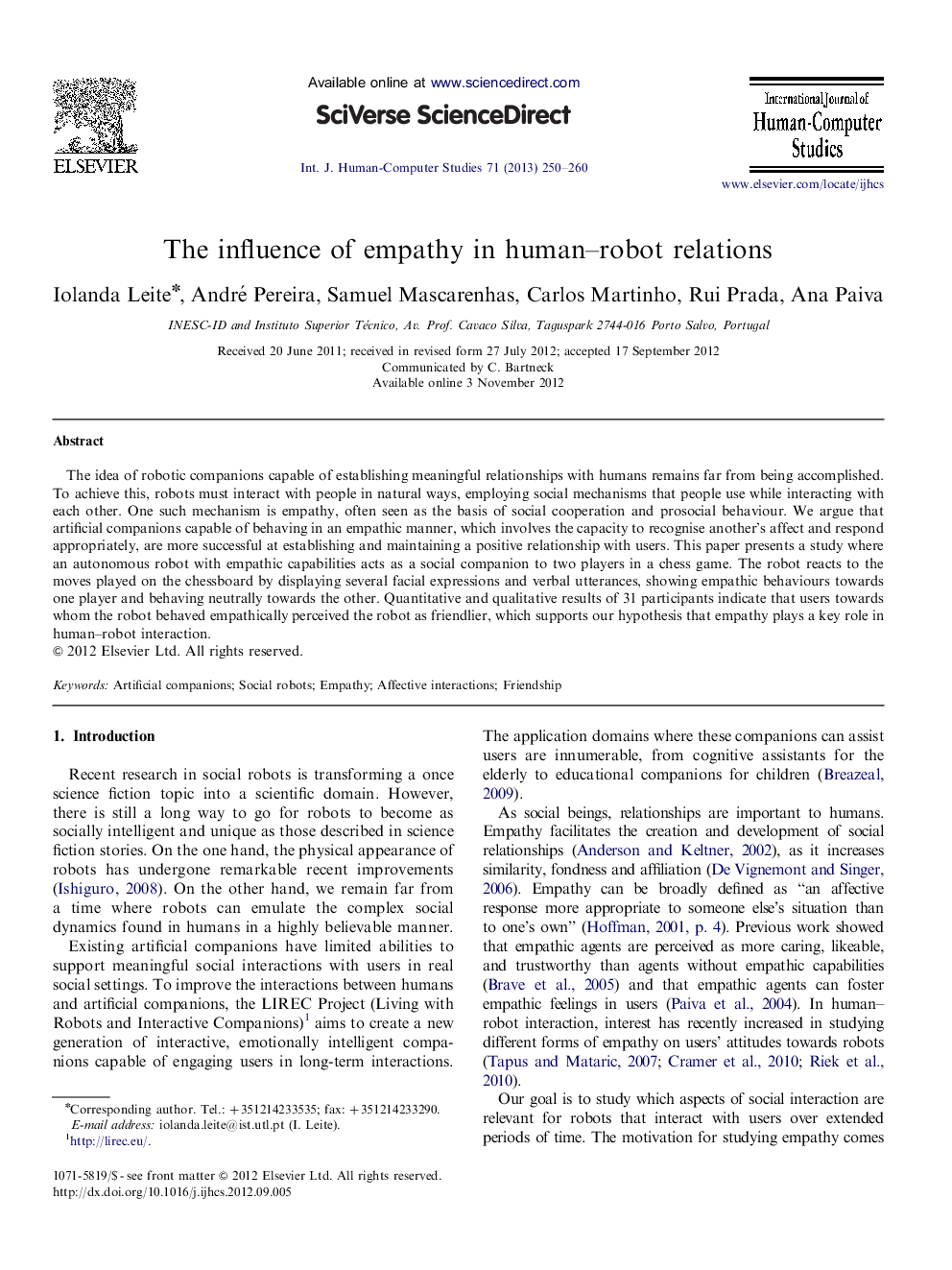| Article ID | Journal | Published Year | Pages | File Type |
|---|---|---|---|---|
| 400895 | International Journal of Human-Computer Studies | 2013 | 11 Pages |
The idea of robotic companions capable of establishing meaningful relationships with humans remains far from being accomplished. To achieve this, robots must interact with people in natural ways, employing social mechanisms that people use while interacting with each other. One such mechanism is empathy, often seen as the basis of social cooperation and prosocial behaviour. We argue that artificial companions capable of behaving in an empathic manner, which involves the capacity to recognise another's affect and respond appropriately, are more successful at establishing and maintaining a positive relationship with users. This paper presents a study where an autonomous robot with empathic capabilities acts as a social companion to two players in a chess game. The robot reacts to the moves played on the chessboard by displaying several facial expressions and verbal utterances, showing empathic behaviours towards one player and behaving neutrally towards the other. Quantitative and qualitative results of 31 participants indicate that users towards whom the robot behaved empathically perceived the robot as friendlier, which supports our hypothesis that empathy plays a key role in human–robot interaction.
► We have developed an empathic robot that comments a chess match between two players. ► The robot displays empathic behaviours towards one of the players and behaves neutrally towards the other player. ► The empathic model is based on the idea that to obtain empathy one has to put himself/herself on the other's shoes. ► The results of a trial with 40 participants are described and discussed. ► Participants towards whom the robot behaved empathically perceived the robot as friendlier.
